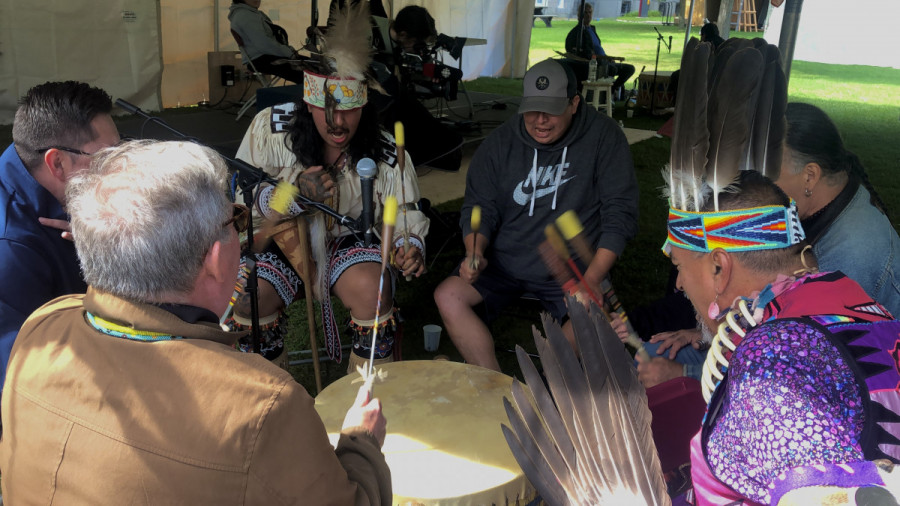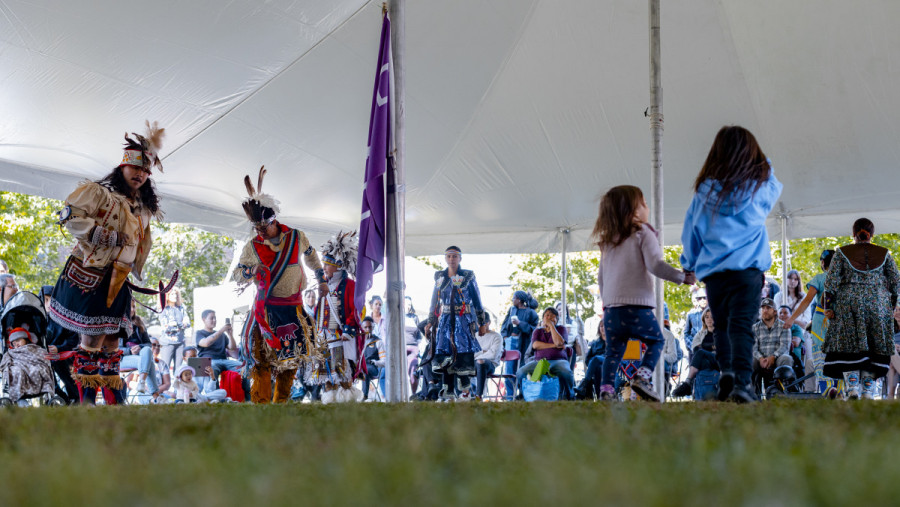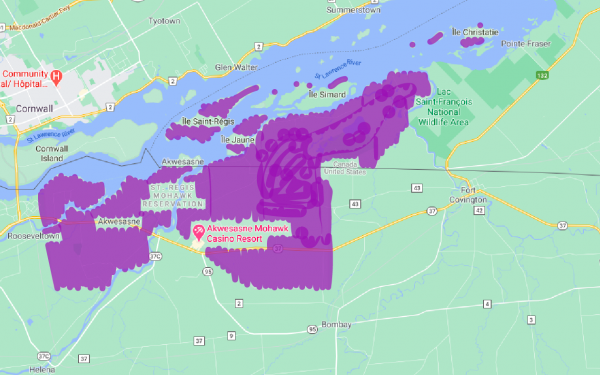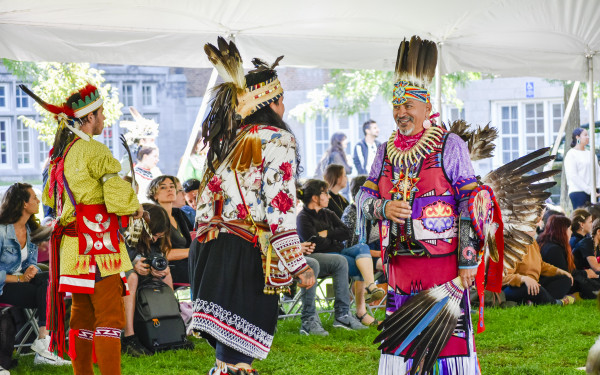Concordia’s Otsenhákta Student Centre Hosts First-Ever Powwow
Celebrating Its 30th Anniversary, the Centre Invited Many Indigenous Performers and Business Owners to Share Their Cultures
Concordia’s Loyola campus had its dull silence broken one late morning by the resounding chants of Indigenous performers in the Quad space.
Organized by the Otsenhákta Student Centre on Sept. 16, the powwow saw around 200 participants, all of whom came to celebrate its 30th anniversary.
A long white tent sheltered the participants and artists from the sun while housing multiple events. Indigenous businesses were invited to sell their crafts to those interested. Amongst what was presented were hand-made jewelry, crystals, skin care and wellness products.
Many of those in attendance were Concordia students, including Sky Rendell, an Indigenous student who moved to Montreal from Ontario to study psychology. She radiated excitement and was full of bubbliness as she shared her enjoyment of the powwow.
“I feel so excited to be here. […] It’s very freeing and healing. I love watching the dancing and listening to the singing and the drums because it resonates with my soul,” Rendell said. “I don’t get to see a whole lot of this around. It’s super important to have everybody come here, hang out together, have a good time and talk about important things as well.”
“My performance becomes bigger than me. It’s healing. It gives me strength and joy.” — Barbara Kaneratonni Diabo
Rendell explained how back in her small hometown, events like powwows would remain relatively small. When she saw the OSC’s turnout, she felt delighted to see so many people celebrating the land, the earth, the waters, and the people, amongst many other things.
The powwow began with opening words given by Delisle Lance, the host of the event. The Grand Entry ceremony followed in which three different flags were raised. Performers then engaged in intertribal dancing, hoop dancing, throat singing and held a Smoke Dance demonstration. The closing ceremony began with hand drumming and singing from the invited artists, and concluded with the retiring of the flags.
Barbara Kaneratonni Diabo, from the Kanien'kehá:ka Nation in Kahnawake, donned purple and white regalia with matching hoops for her performance. She skillfully told stories through the combination of the drum, the singing, her dancing, and the shapes she created.

“My hoop dancing doesn’t tell a single story, but multiple stories,” Diabo said. “We believe that everyone who watches the dance sees a different story, and it’s a story that they are meant to see at today’s powwow.”
As an alumna of Concordia, there had never been anything like this powwow when Diabo was studying, she said. Diabo also shared how full circle it was to return and how happy it made her feel to see old friends again.
“To have my friends play the drum as I’m dancing, it’s extra special. My performance becomes bigger than me. It’s healing. It gives me strength and joy. I’m really happy that I can share that with others,” Diabo said.
She shared her wish to see more events like the powwow happen to continue the cultural exchanges. “It’s really important to support activities like this. It’s a get-together of people who are learning to understand each other better. We need to have more things like this.”
Morning Star Fayard, a student worker at the OSC from the Cree Nation of Mistissini, helped organize the powwow. She shared that the process took around six months, was tedious, with lots of last-minute preparations that stressed her out.
“When I was watching the Grand Entry at the start of the powwow, I felt really overwhelmed—teary, even,” Fayard said. “To see it happen, finally, made me feel overjoyed. The turnout was much better than expected, too. In the end, it was worth planning because it was a perfect day.”
The powwow closed off with an energetic travel song, bidding the participants safe travel back home. Fayard hoped it wasn’t a farewell, but a see you next year.








_600_375_90_s_c1.JPG)
_600_375_90_s_c1.jpg)